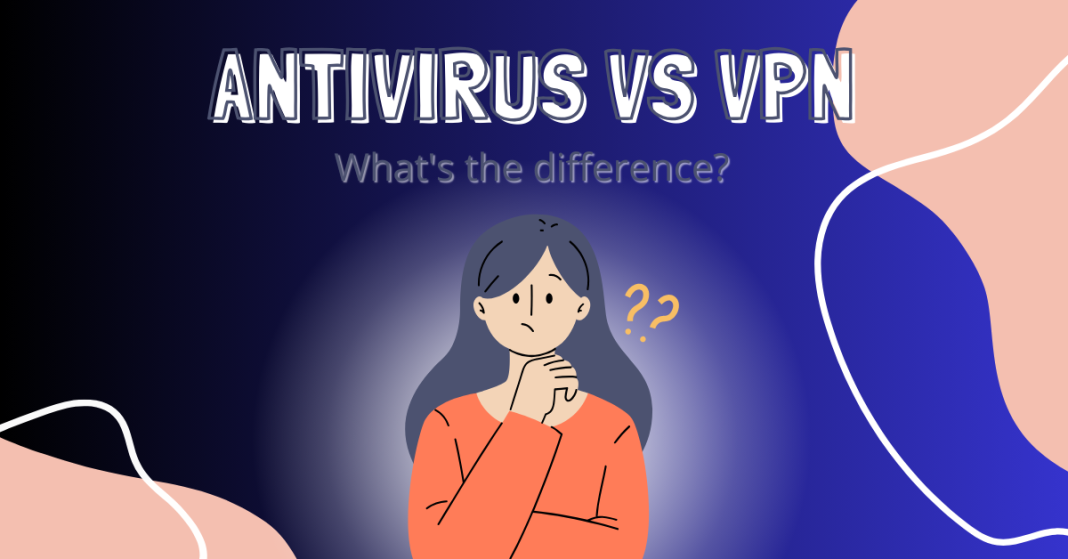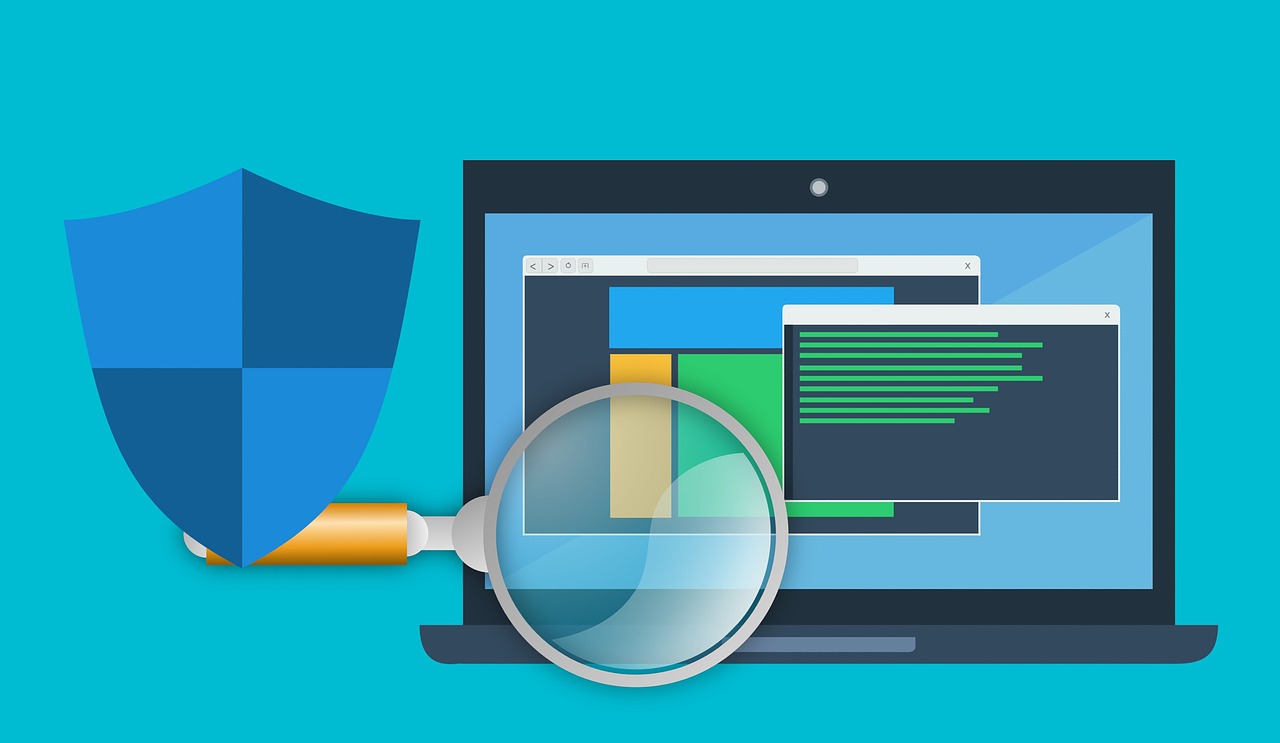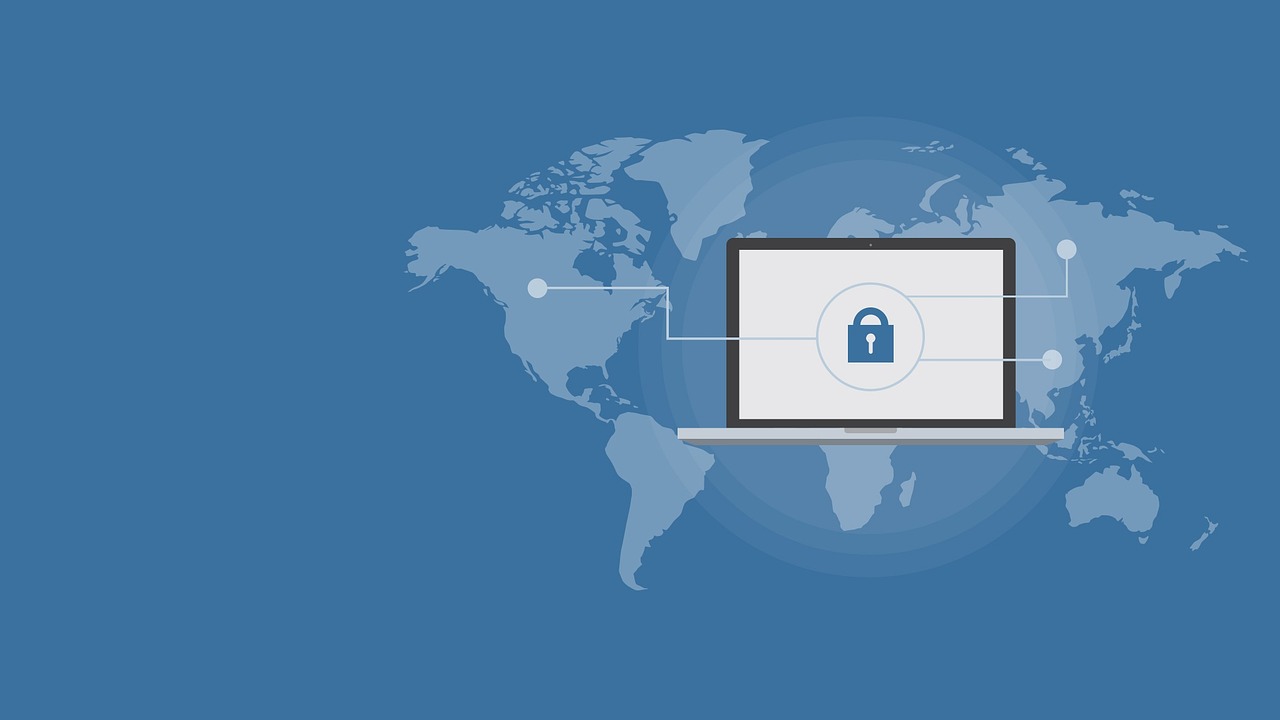Learn the difference between antivirus and VPN in this post. Read on.
In today’s digital age, ensuring the security and privacy of our online activities has become more crucial than ever.
With the rising prevalence of cyber threats, it’s essential to understand the different tools available to protect ourselves. Two such tools are antivirus software and virtual private networks (VPNs).
While both serve the purpose of safeguarding our digital presence, they do so in distinct ways. In this comprehensive guide, we will explore the differences between antivirus and VPN, their functionalities, and why you may need both of them.
Understanding Antivirus Software
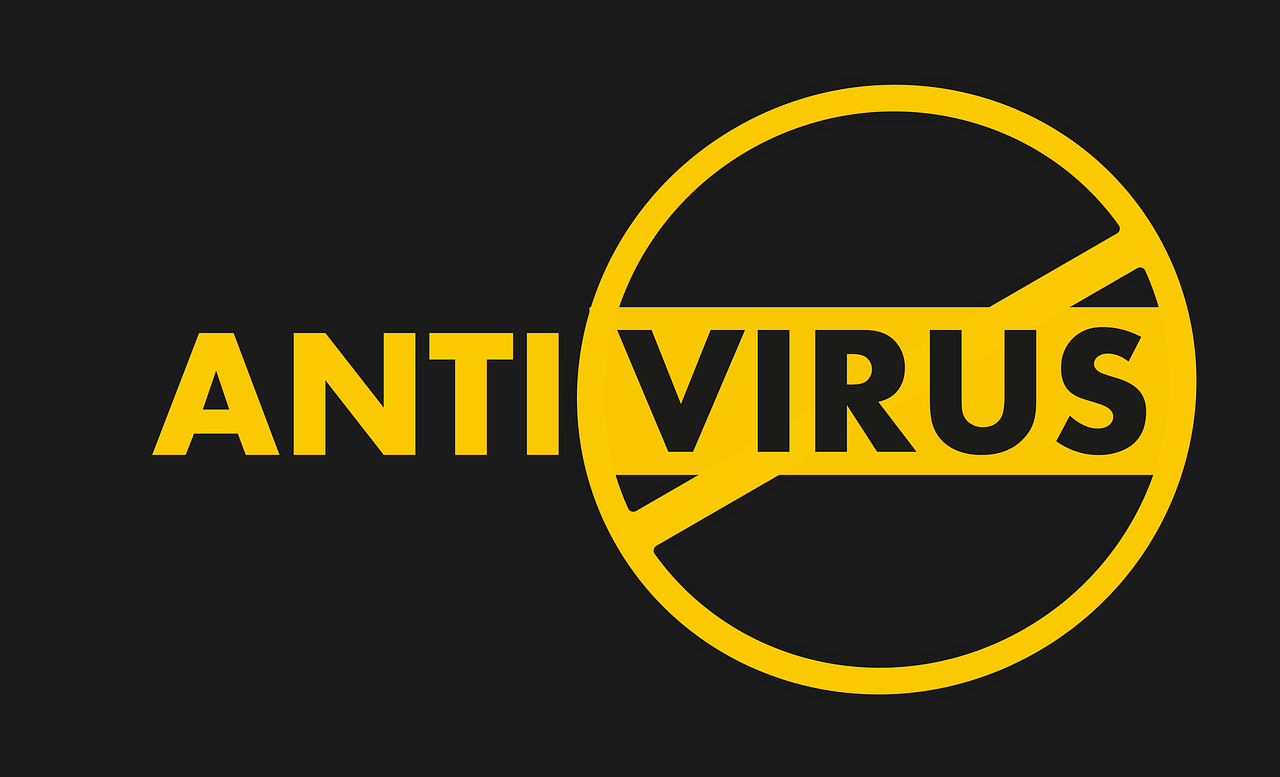
Antivirus software is specifically designed to combat malicious programs that can harm your devices and compromise your security.
It acts as a shield against various threats such as viruses, malware, ransomware, Trojans, and more.
The primary function of antivirus software is to detect, block, and eliminate these harmful programs from your system.
How Antivirus Software Works
Antivirus software works by using a combination of techniques to identify and neutralize potential threats. It scans files, websites, and downloads in real time to detect any suspicious activity or malicious code.
It also maintains a database of known viruses and malware, which it compares against the files on your device. If a match is found, the antivirus software takes appropriate action to quarantine or remove the threat.
Key Features of Antivirus Software
- Real-time scanning: Antivirus software continuously monitors your system for any signs of malware or suspicious activity, providing real-time protection.
- Malware detection and removal: Antivirus software detects and eliminates viruses, malware, and other malicious programs that may pose a threat to your devices and data.
- Web protection: Antivirus software often includes web protection features that block access to malicious websites and warn against potential phishing attempts.
- Email scanning: Many antivirus programs scan incoming and outgoing emails for potential malware attachments or suspicious links.
- Firewall: Antivirus software may include a firewall to protect your network from unauthorized access and block suspicious incoming and outgoing connections.
- Scheduled and on-demand scans: Antivirus software allows you to schedule regular scans or manually initiate scans to ensure comprehensive system protection.
Understanding Virtual Private Networks (VPNs)
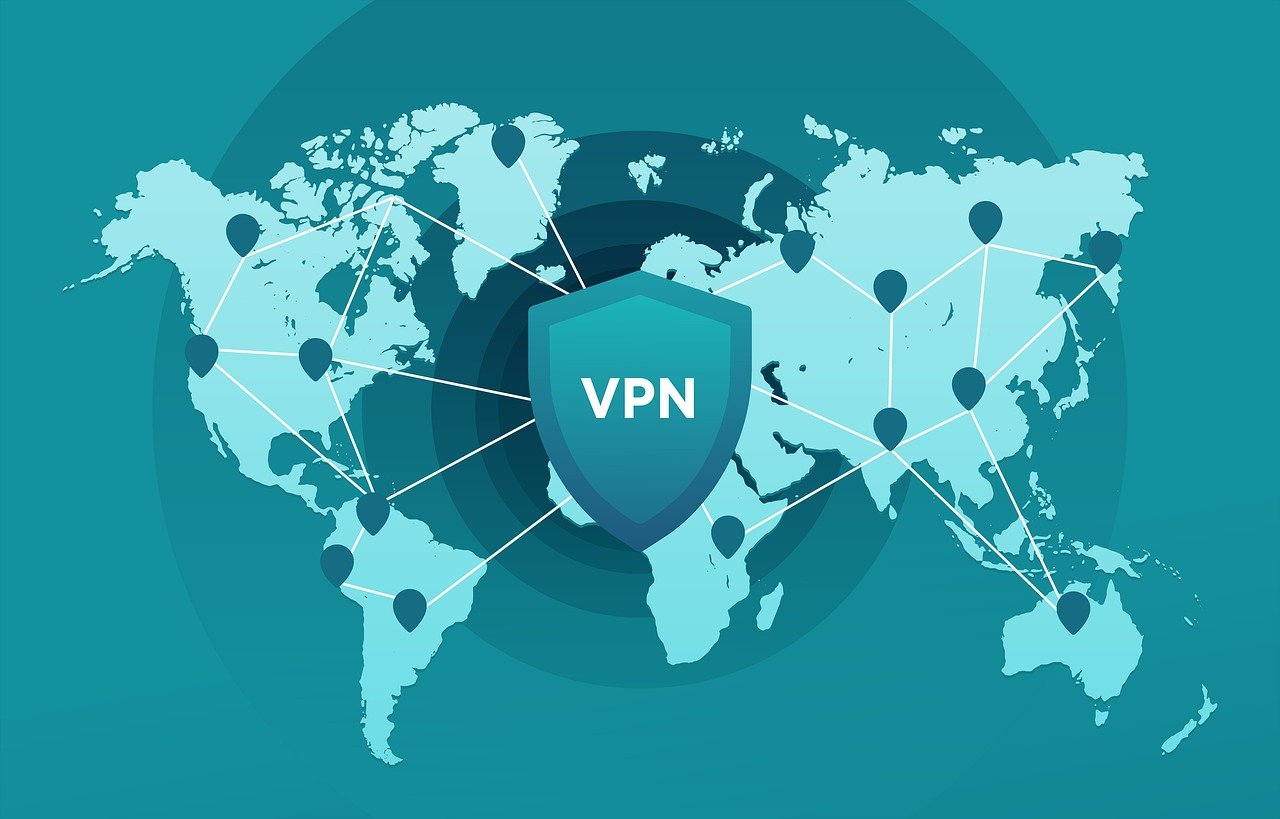
A virtual private network, or VPN, is a technology that provides a secure and private connection over the Internet.
It creates a private network within a public network, encrypting your internet traffic and routing it through remote servers to ensure privacy and security.
How VPNs Work
When you connect to a VPN server, all your internet traffic is encrypted and routed through that server before reaching its destination. This encryption ensures that your data remains confidential and secure, preventing unauthorized access or surveillance.
Additionally, VPNs assign you a new IP address, making it difficult for websites, advertisers, or hackers to track your online activities.
Key Features of VPNs
- Encryption: VPNs encrypt your internet traffic, making it unreadable to anyone who intercepts it. This protects your data from hackers, government surveillance, and other prying eyes.
- Anonymous browsing: By masking your IP address and assigning you a different one from the VPN server, VPNs enable anonymous browsing, ensuring your online activities are private.
- Bypassing geo-restrictions: VPNs allow you to access region-restricted content by connecting you to servers located in different countries. This enables you to bypass geographical restrictions and access content that may be blocked in your location.
- Secure remote access: VPNs enable secure remote access to private networks, allowing employees to connect to their company’s network from remote locations while maintaining data security.
- Protection on public Wi-Fi: When connected to a public Wi-Fi network, your data is vulnerable to interception. VPNs encrypt your traffic, ensuring that your sensitive information remains protected even on unsecured networks.
- Torrenting and P2P file sharing: VPNs provide a secure environment for torrenting and other peer-to-peer file-sharing activities, ensuring your privacy and protecting you from potential legal implications.
The Differences Between Antivirus and VPN
While both antivirus software and VPNs contribute to online security, they serve different purposes and focus on distinct aspects of protection. Let’s explore the key differences between antivirus and VPNs:
1. Scope of Security
Antivirus software primarily focuses on protecting your devices from malware, viruses, and other malicious programs. It scans your files, system, and incoming data to detect and eliminate threats.
On the other hand, VPNs primarily focus on safeguarding your online privacy and anonymity by encrypting your internet traffic and masking your IP address.
2. Protection Mechanism
Antivirus software uses various techniques such as signature-based scanning, heuristic analysis, behavioral monitoring, and machine learning algorithms to identify and eliminate threats. It relies on a database of known malware signatures and continuously updates itself to detect new threats.
VPNs, on the other hand, establish a secure connection between your device and a remote server using encryption protocols, ensuring the confidentiality and integrity of your data.
3. Web Protection
Antivirus software often includes web protection features that detect and block access to malicious websites, phishing attempts, and suspicious links. It provides an additional layer of security while browsing the internet. VPNs, however, do not provide the same level of web protection.
While they encrypt your internet traffic, they do not actively block access to malicious websites or scan for potential threats.
4. Privacy and Anonymity
VPNs are specifically designed to protect your privacy and anonymity online. By encrypting your traffic and masking your IP address, they prevent websites, advertisers, and even your internet service provider from tracking your online activities.
Antivirus software, although it provides security, does not offer the same level of privacy protection as VPNs.
5. Network Security
VPNs offer network-level security by creating a secure tunnel for your internet traffic. This ensures that your data remains encrypted and protected from potential eavesdropping or interception.
Antivirus software, on the other hand, primarily focuses on protecting your device and files from malware infections. It does not provide the same level of network security as VPNs.
6. Access to Restricted Content
VPNs enable you to bypass geographical restrictions and access region-restricted content by connecting you to servers located in different countries.
This allows you to enjoy unrestricted access to streaming platforms, websites, and other online services. Antivirus software does not provide this feature.
7. Protection of Public Wi-Fi
VPNs are particularly useful when connected to public Wi-Fi networks, such as those found in cafes, airports, or hotels. These networks are often unsecured, leaving your data vulnerable to interception.
By encrypting your traffic, VPNs protect your sensitive information from potential hackers or malicious actors. Antivirus software does not offer the same level of protection on public Wi-Fi networks.
8. File Sharing and Torrenting
VPNs provide a secure environment for file sharing and torrenting activities. By encrypting your traffic and masking your IP address, they ensure your privacy and protect you from potential legal implications.
Antivirus software, although it may scan downloaded files for malware, does not offer the same level of privacy and security for file-sharing activities.
Antivirus vs. VPN: Key Differences
| Feature | Antivirus | VPN |
|---|---|---|
| Primary function | Protects your device from malware and viruses | Protects your online privacy and encrypts internet traffic |
| What it protects against | Viruses, malware, spyware, ransomware, phishing attacks | Data breaches, identity theft, government surveillance, website tracking, geo-restrictions |
| Protects against downloaded files? | Yes | No, but can encrypt downloaded files after they are on your device |
| Encrypts internet traffic? | Typically not | Yes, it encrypts your internet traffic with strong protocols like AES-256 |
| Hides your IP address? | No | Yes, it hides your IP address and makes your online activity anonymous |
| Bypasses geo-restrictions? | No | Some VPNs can bypass geo-restrictions to access blocked content |
| Impacts internet speed? | It may have minimal impact | It can slightly slow down your internet connection due to encryption |
| Cost | Varies, with free and paid options | Typically requires a paid subscription |
| Ideal for | Users concerned about malware and virus infections | Users concerned about online privacy, security, and bypassing geo-restrictions |
Similarities Between Antivirus and VPN:
| Feature | Antivirus | VPN |
|---|---|---|
| Primary Goal | Security | Privacy |
| Method | Protects against malicious software on your device | Encrypts and anonymizes your internet traffic |
| Benefits | Prevents malware infections, data theft, and system damage | Shields your browsing activity from tracking, data leaks, and censorship |
| Target Threats | Viruses, Trojans, ransomware, spyware | Hackers, snoopers, government surveillance, geo-restrictions |
| Active Protection | Continuously scans your device for threats | Encrypts data in real-time as you use the internet |
| User Interface | Apps with dashboards and settings | Apps or browser extensions with server selection and connection options |
| Subscription Model | Often paid, but free options are available | Paid subscriptions are most common, but free trials exist |
| Impact on Performance | It can slightly slow down your device | It may slow down the internet connection due to encryption |
Do You Need Both Antivirus and VPN?
Considering the distinct functionalities and areas of focus, it is recommended to have both antivirus software and a VPN for comprehensive online security. Antivirus software protects your devices and files from malware, viruses, and other threats, while a VPN ensures your privacy, anonymity, and secure internet connection. Together, they provide a multi-layered defense against various cyber threats.
By using antivirus software, you can protect your devices from malware infections and other malicious programs. It scans your files, system, and incoming data to detect and eliminate threats. Additionally, it provides web protection, email scanning, and other features to enhance your security.
A VPN, on the other hand, encrypts your internet traffic, masks your IP address, and provides anonymous browsing. It protects your data from interception, ensures privacy on public Wi-Fi networks, and enables access to geo-restricted content. By using a VPN, you can browse the internet securely and anonymously.
While both antivirus software and VPNs contribute to online security, they serve different purposes and offer distinct features. By combining them, you can create a comprehensive security setup that protects your devices, data, and privacy.
Conclusion
In conclusion, antivirus software and VPNs are essential tools for safeguarding your online presence. While antivirus software protects your devices from malware, viruses, and other malicious programs, VPNs ensure your privacy, anonymity, and secure internet connection. Although they have different functionalities, they complement each other and provide a comprehensive defense against various cyber threats.
By using antivirus software, you can scan and protect your devices from malware infections, while a VPN encrypts your internet traffic, masks your IP address, and provides anonymous browsing. Together, they offer a multi-layered security approach that enhances your online safety.
To ensure the utmost protection, it is recommended to invest in reliable antivirus software and a reputable VPN service. By choosing the right tools and adopting safe online practices, you can enjoy a secure and private online experience.
Remember, maintaining a proactive approach to online security is essential in today’s digital landscape. Stay informed, keep your software up to date, and remain vigilant to protect yourself from evolving cyber threats.
INTERESTING POSTS
Angela Daniel is the Chief Editor at AntivirusWithVPN.com. With a background in journalism and a passion for cybersecurity, Angela ensures our content is accurate, engaging, and easily digestible. Her commitment to enhancing online security drives her work as Chief Editor.


